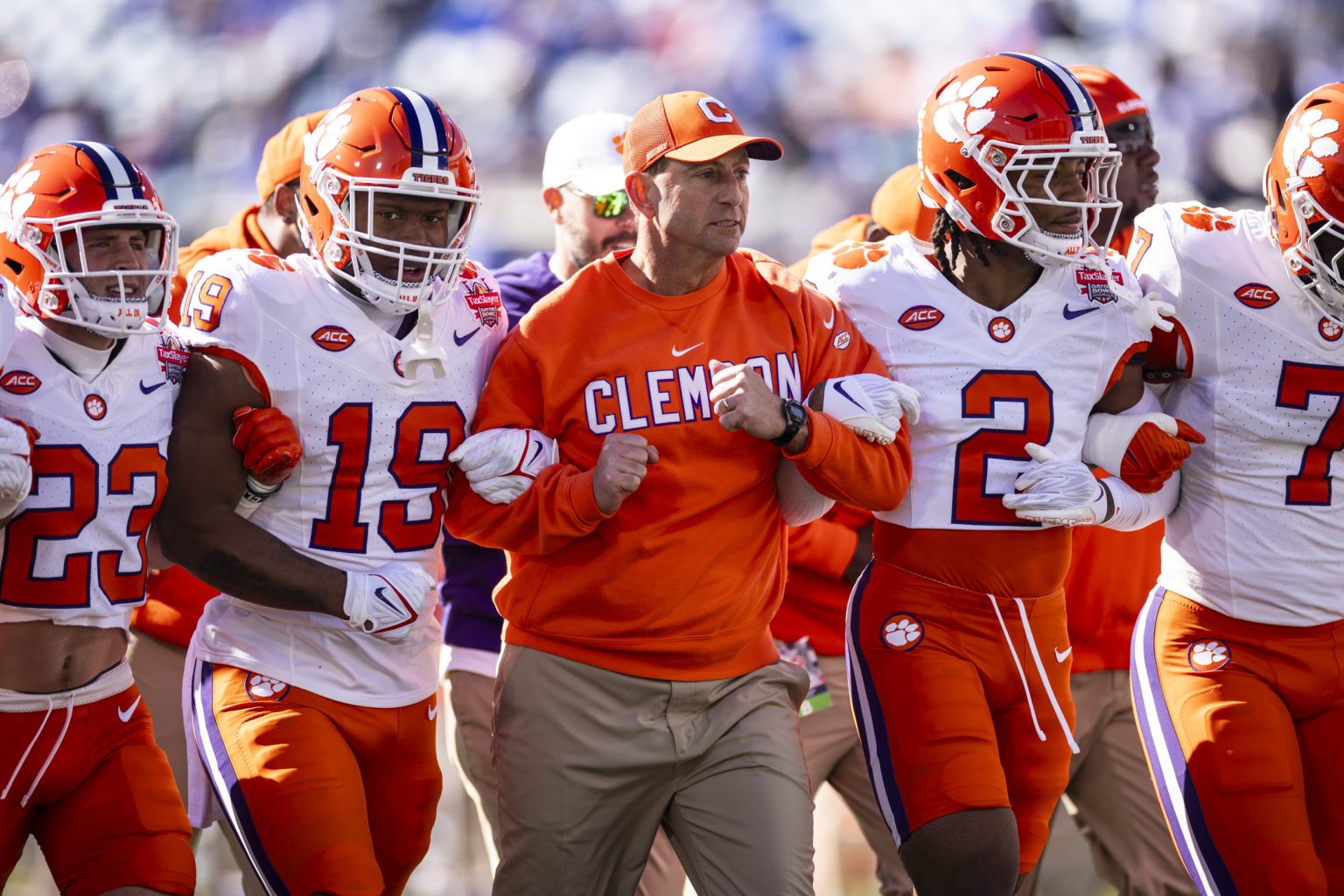Dabo Swinney’s refusal to adapt to the current landscape of college football, including the transfer portal and Name, Image, and Likeness (NIL), has led to Clemson falling behind other programs. Since the transfer portal opened in 2018, incoming transfers have made zero starts for the Tigers, reflecting Swinney’s old-school approach to coaching. Swinney prioritizes building character in his players and emphasizes education over adapting to the changing dynamics of college football. This stance has caused Clemson to miss out on potential talent that could improve the team.
Swinney’s reluctance to embrace NIL and the transfer portal is similar to former Alabama head coach Nick Saban’s beliefs. Saban, who stepped down in January after leading Alabama to six national championships in 17 seasons, also expressed concerns about the direction of college athletics. He believed that the emphasis on revenue sharing and compensation for student-athletes should not compromise the development of players. Saban’s departure highlights the challenges that coaches like Swinney face in balancing traditional values with the evolving demands of college football.
The impact of Swinney’s refusal to embrace NIL is evident in Clemson’s performance on the field. Programs that are willing to compensate their players have emerged as successful teams, leaving behind those like Clemson who prioritize other aspects of coaching. The Tigers’ recent 34-3 loss to No.1 ranked Georgia further underscores the need for Swinney to adapt to the modern era of college football or risk falling into irrelevance. The pressure is mounting on Swinney to reconsider his approach and make changes that could benefit his team in the long run.
As college football continues to evolve, coaches like Swinney are facing the challenge of keeping up with the changing landscape. The transfer portal and NIL have transformed the way programs operate and recruit players, necessitating a shift in traditional coaching strategies. Swinney’s outdated approach may soon become a liability for Clemson, as other programs capitalize on the opportunities presented by these new developments. It remains to be seen whether Swinney will choose to adapt to his new surroundings or risk the consequences of remaining stagnant in a rapidly evolving sport.
The lack of starts from incoming transfers at Clemson underscores Swinney’s resistance to embracing change in college football. While he focuses on building character in his players, other programs are using the transfer portal and NIL to their advantage, resulting in more competitive rosters. Swinney’s outdated beliefs may be holding back Clemson from reaching its full potential and competing with top programs in the country. The recent struggles of the Tigers on the field serve as a reminder of the consequences of not adapting to the new realities of college football, and the need for Swinney to reconsider his approach in order to stay relevant in the ever-changing landscape of the sport.








